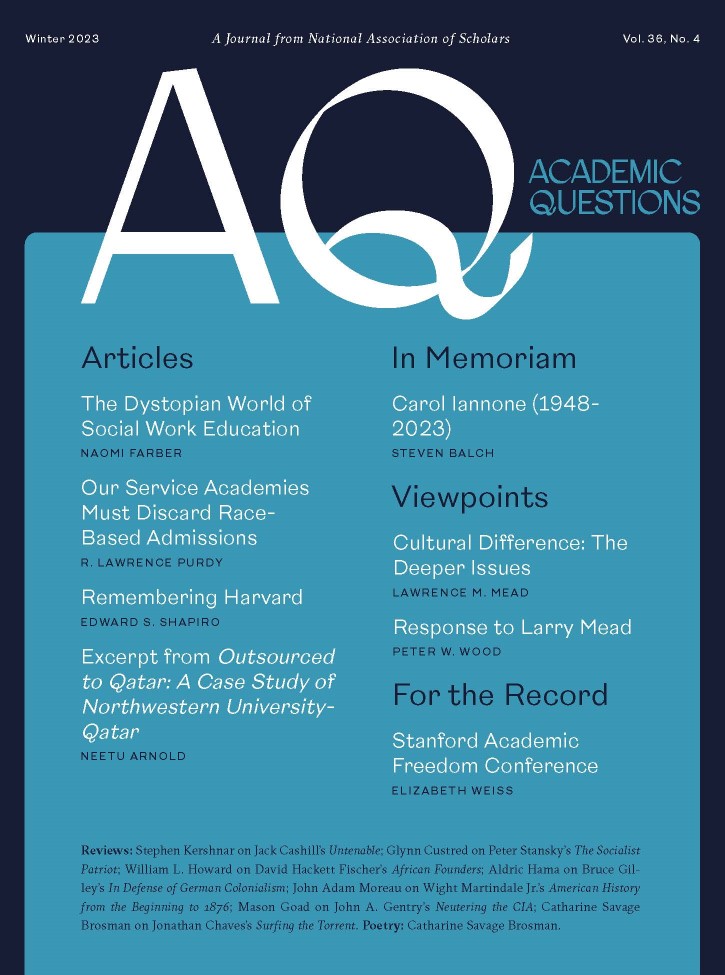In Defense of German Colonialism: And How its Critics Empowered Nazis, Communists, and the Enemies of the West, Bruce Gilley, Regnery Gateway, 2022, pp. 319, $24.29 hardcover.
Portland State University Professor of Political Science Bruce Gilley offers his second book on European colonialism, moving from The Last Imperialist (2021), a biography of British colonial officer Sir Allen Burns and early twentieth century British colonialism, to the current volume on Germany’s thirty-year experience with overseas colonialism. As in The Last Imperialist, Gilley contrasts actual history with European colonialism as espoused by today’s “progressive,” anti-colonialist historians, which are little more than “judgmental trial[s] of alleged crimes” and “ideological vivisection.”
Activists and their thugs are more than willing to step beyond academic distortion, to threatening one’s livelihood and personal safety. Previous threats to his safety and his academic career by activists have not dampened Gilley’s persistence; progressives demand “tolerance” from others but do not themselves tolerate questioning of their comfortable lies.1
Gilley offers an expansive tour of German colonialism, from the late nineteenth century until German surrender of colonial possessions following World War I. But his final chapter, “Woke Anti-Colonialism and the Hollowing of Europe,” goes well beyond a history lesson. A “well organized” group of strident “lobbyists, scholars and politicians” view German colonialism, which at its peak boasted seven colonies containing a mere two percent of the global colonial population, as “exploitative,” “racist,” and “genocidal,” the very core, we are told, of German National Socialism. In their thinking, German colonialism led to the Nazi Holocaust.
Gilley patiently dispels the notion that German colonialism had anything to do with the Holocaust or the rise of German National Socialism. From the early days of unification, German officials were reluctant to utilize imperialism as a means of economic expansion. Chancellor Otto von Bismarck viewed colonialism “with disdain,” and stated, “No colonialism as long as I am chancellor.”
The economy of his newly unified nation was larger than that of France’s and second to Great Britain. Thus, Leninists claimed, Germany “should have been brimming with imperialist agitation to boost profits and loot raw materials from hapless brown people.” In addition, anti-colonialists claimed that growing German knowledge and scholarship in Middle Eastern and Far Eastern religion, art, and culture should have evoked a German “itch for foreign conquest.” Instead of encouraging more colonialism, Bismarck sought to put order into global colonialism. Out of a sense of national responsibility, Bismarck believed this would be the correct thing to do, with Germany’s “growing trade and security interests abroad.”
Private German enterprises at the time were buying pieces of Africa from natives and hoisting the German flag—Bismarck stated that he “will try to protect them,” not so much with military force but with “trade houses” and businessmen instead of policemen. In German Cameroon, for example, there was only one soldier or policeman for every 1,000 residents.2
Bismarck also saw that “natives wanted . . . to be colonized,” as Germany as well other European powers exported its “governance system,” developed “native economies” and shared in “global peace operations.” If there was no German colonialism, then what would have life been like? The first Germans in West Africa encountered “tribal warfare and human carnage,” along with Arab slave traders and high childhood mortality. In South West Africa, there was more slave trading and inter-tribal warfare along with cattle rustling. East Africa was beset by inter-tribal war and ubiquitous Arab slave traders. In German New Guinea, more inter-tribal warfare and in addition, cannibalism, human sacrifice, and head-hunting. Gilley cites Turkish author Orhan Pamuk, wryly responding to anti-colonialists, “If it weren’t for the West, the East would be a wonderful place.”
Gilley goes on to show that spreading of “Enlightenment ideas” to “black and brown people” had the effect of enforcing liberalism at home. With the disappearance of their colonies, “the conservative national unity that prevailed in Germany would give way to domestic dissension . . . The Weimer and Nazi eras that followed would show the consequences of losing the national sentiment that came with the colonies.” Chancellor Adolph Hitler denounced colonialism in general and German colonialism in particular. One could indeed point out to progressives and anti-colonialists that they do have something in common with the Nazis.
Gilley points out that it was European “Enlightenment ideas and institutions . . . that colonized the world.” What the Germans were spreading, we would call today “liberal internationalism.” According to convoluted anti-colonialist thinking, however, what the Germans were really spreading was “fascism.”
Despite the facts on the ground, Gilley observes that postwar Germans have to a large extent succumbed to continuous excoriation by the socio-political elite, orthodox historians, and media over their “racist heritage.” The German public has displayed shame and guilt, rejecting not only their colonial history but also their past achievements in the arts and sciences. Progressives have seized upon this German national guilty conscience and, under the rubric of what Gilley calls “guilt politics,” pushed a range of “illiberal and cynical movements” and pet projects, from apologies and reparations to former German colonies in Africa and opening Germany to more Third World immigration to banning fossil fuels—because fossil fuel is “racist,” don’t you know.3 “Illiberal movements” would also include the stifling of open discussion of the colonial era and institutionalizing “a false narrative in which . . . distorted history” becomes “laurels of achievement.”
Gilley tells readers what he thinks will result should “guilt politics” replace open, rational discourse. The enemies of the West, Gilley points out, “most of whom live in splendor in the West itself, would like nothing more than to see a collapsed civilization of state-dependent serfs looking for guidance from arrogant elites telling them how guilty they should feel.”
Gilley’s straight-forward enumeration of the advantages of German colonialism is to be admired, particularly of bringing Western enlightenment ideas to non-Westerners. However, he has at times gone the way of his detractors—and painted early twentieth century Japanese as “fascists.” He notes with dismay that during World War I, Japan, siding with the Allies, “illegally” attacked and then captured the city of Qingdao in the German colony of Jiaozhou Bay, on the southern coast of the Shandong Peninsula.4 Readers should wonder if Germany’s 1897-1898 naval invasion of Jiaozhou Bay, within a politically unstable albeit sovereign nation, was any less “illegal.” Gilley muses that had the port city passed to the British, who supported Japan at the time, Qingdao “might have remained a thriving and humane northern version of Hong Kong.” Gilley’s musing is merely that.
There are other holes that Gilley avoided, the Germans going well beyond the spreading of Enlightenment ideas, such as the Triple Intervention of 1895, and alleged looting by German soldiers during the Boxer Rebellion (1899-1901). The Nazis backed with military aid Generalissimo Chiang Kai Shek during WWII, who was fighting Japan. The “fascist” mantel fits the leader of the Republic of China, as he applied Nazi methods to suppress dissent in China and organize his political base.5 Current scholarship in Japanese colonialism is as lacking as Gilley characterizes the case of European colonialism. Perhaps forthright authors such as Gilley will produce such a book.
Is it possible that modern historians who are more interested in recording the facts rather than passing judgement can produce readable and thought provoking history books? In any event, if readers enjoyed Gilley’s efforts up until now, they could find his future third volume enjoyable as well.
1 Noah Carl, “Bruce Gilley vs. Cancel Culture,” Quillette, October 30, 2020.
2 Compare this ratio to 1 to 100 to 200 for modern African states, 93.
3 J. Williams, “Climate change divides along racial lines,” BBC, January 27, 2022, https://www.bbc.com/future/article/20220125-why-climate-change-is-inherently-racist.
4 The “Kiautschou Bay Leased Territory,” covering 213 square miles of Jiaozhou Bay, including Qingdao, https://en.wikipedia.org/wiki/Kiautschou_Bay_Leased_Territory.
5 L. E. Eastman et al. The Nationalist Era in China, 1927-1949 (Cambridge, U.K.: Cambridge University Press, 1991); H.L. Huang, H-L., The Missing Girls and Women of China, Hong Kong and Taiwan (Jefferson, NC: MacFarland, 1989); J. Bradley, The China Mirage (New York, N.Y.: Little, Brown and Co, 2015).
Photo by gors4730 on Adobe Stock













